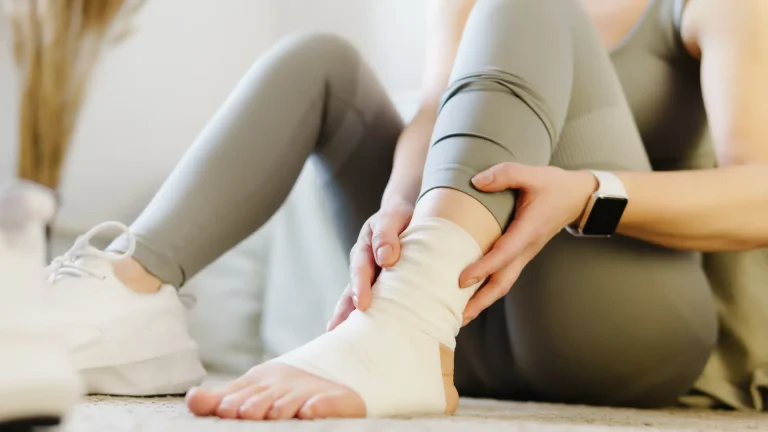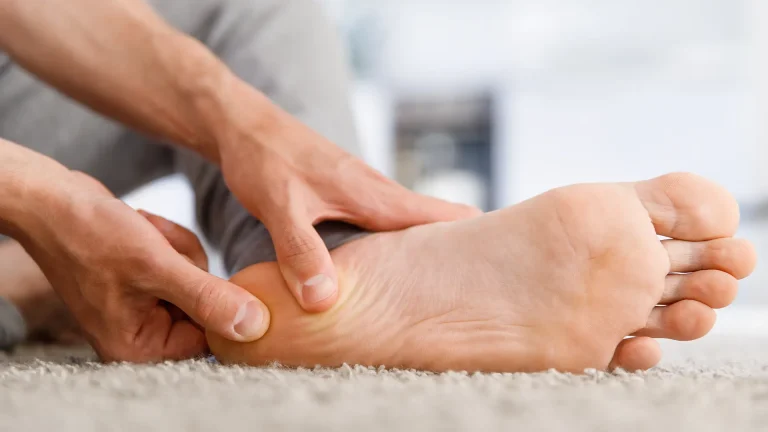Whether you’re a seasoned marathoner or a weekend jogger, maintaining healthy feet is key to improving your running performance and preventing injuries. According to the American College of Foot and Ankle Surgeons, taking proactive steps to address common foot issues can make all the difference.
“The human foot is a remarkable structure, capable of withstanding the stresses of daily movement,” says Dr. Marybeth Crane, DPM, FACFAS, a foot and ankle surgeon based in the Dallas/Fort Worth area. “For runners, however, feet are particularly prone to injuries, and addressing potential problems early is essential to staying active and pain-free.”
Heel Pain: A Common Complaint
Dr. Crane, an avid marathon runner herself, notes that heel pain is one of the most frequent issues runners face. This pain is often due to plantar fasciitis, an inflammation of the ligament supporting the arch.
“In runners, heel pain can stem from poor foot mechanics or overpronation, where uneven pressure is applied to the inside of the foot,” explains Dr. Crane. “Worn-out or overly soft running shoes can also contribute to the problem.”
At the first sign of heel pain, Dr. Crane recommends:
- Performing regular stretching exercises.
- Wearing supportive, sturdy running shoes.
- Using arch supports or insoles.
For persistent pain, icing and over-the-counter anti-inflammatory medications like ibuprofen may help. Severe cases may require custom orthotics, physical therapy, or even injections.
Neuromas: Pinched Nerves That Slow You Down
Neuromas, or pinched nerves between the toes, are another issue that can hinder runners. Symptoms include pain, numbness, and a burning sensation in the ball of the foot.
“Flexible shoes without adequate support are often to blame,” says Dr. Crane. Treatment options include padding, orthotics, or injections, which typically provide relief.
Tendonitis: Overuse Injuries That Demand Attention
Runners who push themselves too hard, especially beginners, are at risk of developing tendonitis. This overuse condition can affect the Achilles tendon and other areas of the foot.
“There are various forms of tendonitis, but most respond well to rest, icing, stretching, and anti-inflammatory medications,” says Dr. Crane. “Orthotics and physical therapy may also be necessary for severe cases.”
To prevent tendonitis, runners should avoid overtraining and gradually increase their mileage and intensity.
Myth: “If I Can Walk, It’s Not Broken”
Dr. Crane debunks a common misconception among athletes: the belief that you can’t walk or run if you’ve fractured a bone in your foot.
“Many people are shocked to learn they have a stress fracture because they can still walk,” she explains. “However, pain and swelling might not appear immediately.”
If you suspect a fracture or sprain, remember the acronym RICE:
- Rest: Avoid putting weight on the injured foot.
- Ice: Apply ice packs to reduce swelling.
- Compression: Use a wrap or bandage for support.
- Elevation: Keep your foot raised to minimize swelling.
If pain or swelling persists after three or four days of RICE treatment, it’s time to consult a foot and ankle surgeon for an X-ray and accurate diagnosis.
Your Feet, Your Foundation
Runners rely on their feet for every stride, and keeping them healthy is critical to achieving their goals. By addressing foot pain early and taking preventive measures, you can enjoy a smoother, more successful running journey.
For more information on foot health and treatment options, consult a qualified foot and ankle specialist.





